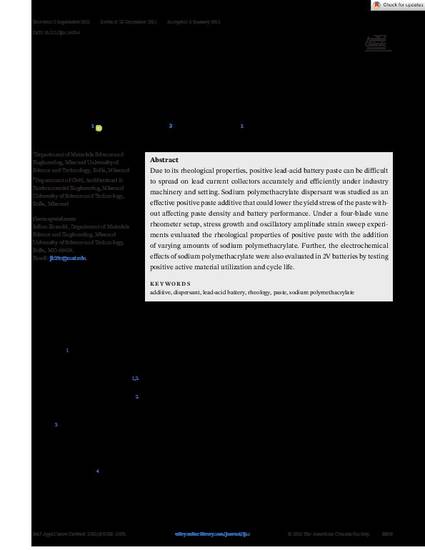
Due to its rheological properties, positive lead-acid battery paste can be difficult to spread on lead current collectors accurately and efficiently under industry machinery and setting. Sodium polymethacrylate dispersant was studied as an effective positive paste additive that could lower the yield stress of the paste without affecting paste density and battery performance. Under a four-blade vane rheometer setup, stress growth and oscillatory amplitude strain sweep experiments evaluated the rheological properties of positive paste with the addition of varying amounts of sodium polymethacrylate. Further, the electrochemical effects of sodium polymethacrylate were also evaluated in 2V batteries by testing positive active material utilization and cycle life.
- additive,
- dispersant,
- lead-acid battery,
- paste,
- rheology,
- sodium polymethacrylate
Available at: http://works.bepress.com/fatih-dogan/237/
